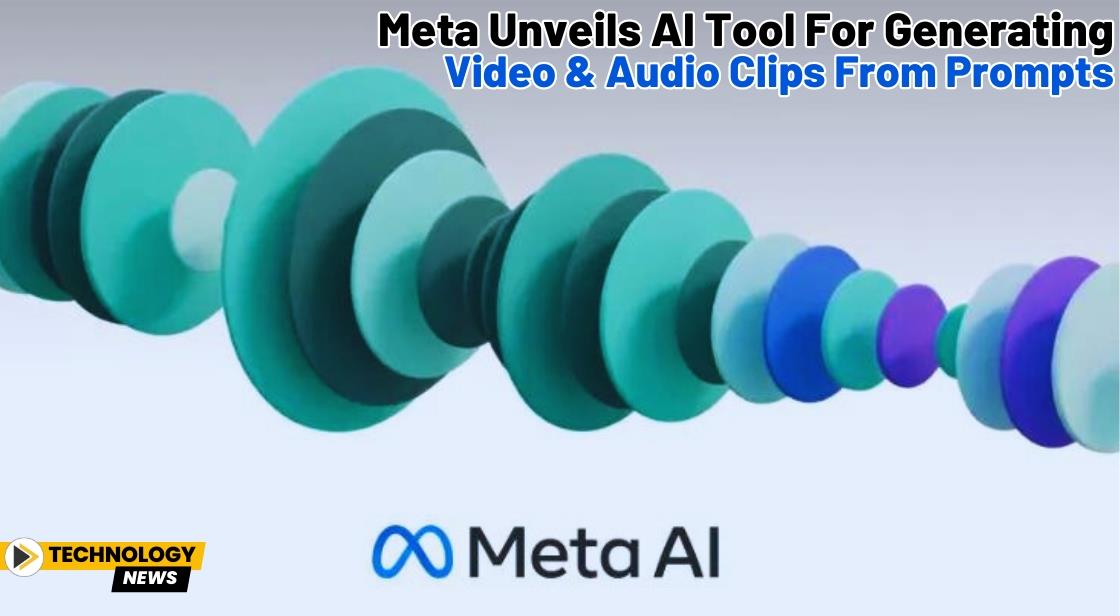Meta Unveils AI Tool for Generating Video and Audio Clips from Prompts

News Synopsis
Meta, the parent company of Facebook, has unveiled Movie Gen, an innovative AI model designed to create realistic video and audio clips from simple user prompts. This advancement positions Meta alongside leading media generation startups, including OpenAI and ElevenLabs, in the rapidly evolving landscape of AI-driven content creation.
Capabilities of Movie Gen
The Movie Gen model can generate highly realistic videos and audio clips, showcasing its capability to sync sound effects and background music to the visual content. According to a blog post from Meta, the model can produce videos of up to 16 seconds and audio clips lasting 45 seconds. Demonstrations of the technology include videos featuring animals swimming and surfing, as well as animations using actual photographs of individuals to illustrate them engaging in activities such as painting.
Editing Existing Content
In addition to generating new clips, Movie Gen can also edit existing videos. For instance, one example demonstrated the tool's ability to digitally insert pom-poms into the hands of a man running in a desert setting. Another showcased its power to transform a dry parking lot into one filled with splashing puddles while a skateboarder navigated the area. These features highlight the model's versatility and creativity in video manipulation.
Performance Comparison with Competitors
Meta's blog post included findings from blind tests indicating that Movie Gen performs competitively when compared to offerings from other startups, such as Runway, OpenAI, ElevenLabs, and Kling. This performance comparison reinforces Meta's assertion that their model is on par with leading tools in the market.
Industry Context and Challenges
The announcement of Movie Gen arrives during a pivotal time for the entertainment industry, which is grappling with the integration of generative AI video technology. Earlier this year, Microsoft-backed OpenAI showcased its product, Sora, capable of producing feature film-like videos from text prompts. As filmmakers express interest in utilizing such tools to enhance their work, there are rising concerns over the ethical implications and the potential misuse of generative AI technologies.
Concerns Regarding Copyright and Misinformation
Critics within the entertainment sector are wary of AI systems that might have been trained on copyrighted material without proper authorization. Additionally, there are growing apprehensions among lawmakers regarding the use of AI-generated deepfakes in political contexts across various countries, including the United States, Pakistan, India, and Indonesia. These factors create a complex landscape for AI technology as it integrates into creative fields.
Cautious Approach to Public Access
Despite the promising capabilities of Movie Gen, Meta has indicated that it is unlikely to release the tool for open use by developers, contrasting its approach with that of its Llama series of large-language models. Meta representatives emphasized that the company is carefully evaluating the risks associated with each model before determining its release strategy. While they did not provide specific insights into their assessment of Movie Gen, they confirmed ongoing collaborations with the entertainment community and content creators.
Future Integrations and Partnerships
Meta plans to incorporate Movie Gen into its own products in the coming year. Currently, the company is working directly with industry professionals to explore applications for the model, ensuring its deployment aligns with the needs and expectations of content creators.
Data Sources and Development Process
To develop Movie Gen, Meta utilized a combination of licensed datasets and publicly available materials. This approach aims to ensure the model is robust and capable of generating high-quality content while addressing potential legal and ethical concerns.
Competitive Landscape and Collaborations
As the competition in AI-generated media intensifies, OpenAI has also been engaging with Hollywood executives to discuss potential partnerships involving its Sora product. While no formal agreements have emerged yet, the conversations underline the industry's keen interest in leveraging generative AI tools. In a notable move, Lions Gate Entertainment has recently granted AI startup Runway access to its film and television library to train an AI model, showcasing the willingness of traditional media companies to collaborate with technology firms.
Conclusion
Meta's introduction of Movie Gen marks a significant advancement in the realm of AI-generated content, offering new opportunities and challenges for the entertainment industry. As the capabilities of such models continue to evolve, the discourse surrounding ethical considerations and copyright compliance will remain critical. With its commitment to working with industry professionals and cautious approach to public access, Meta is poised to shape the future of content creation in the digital age.
You May Like









